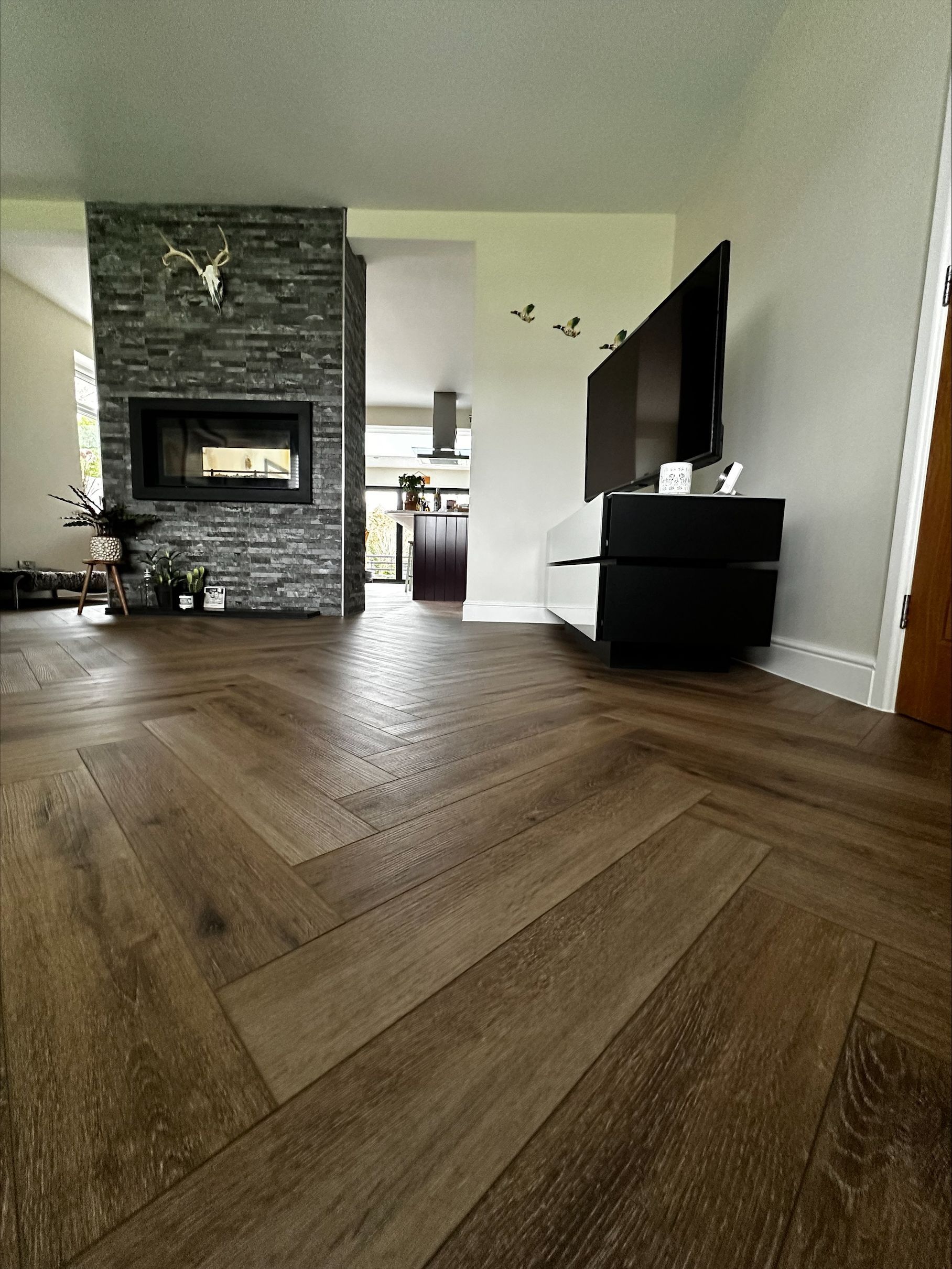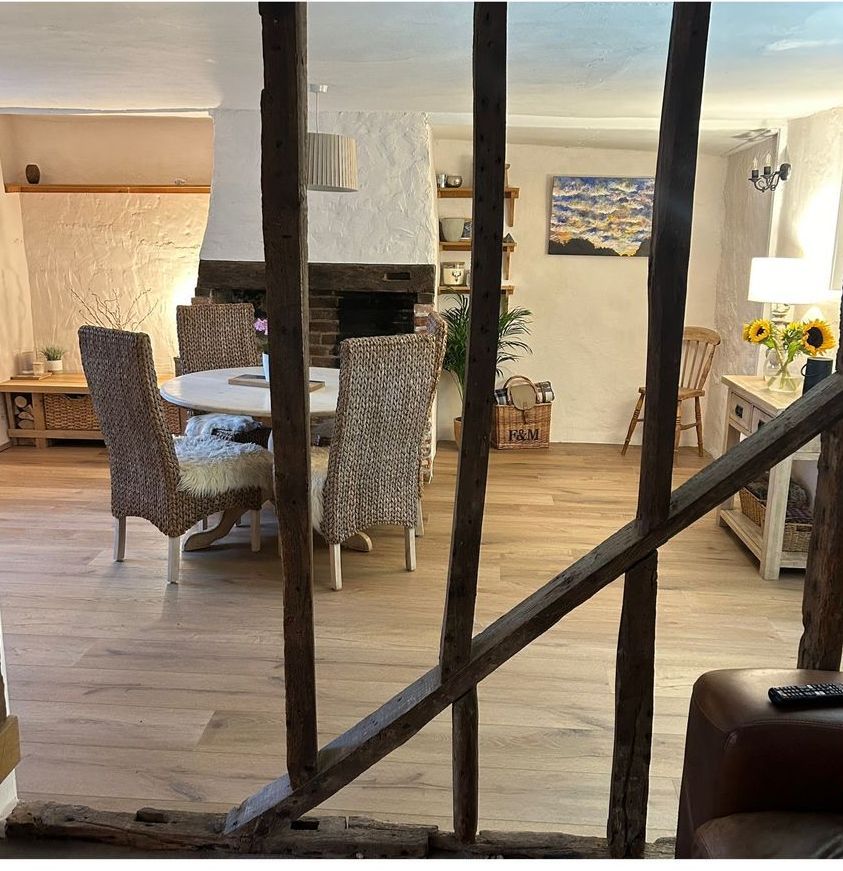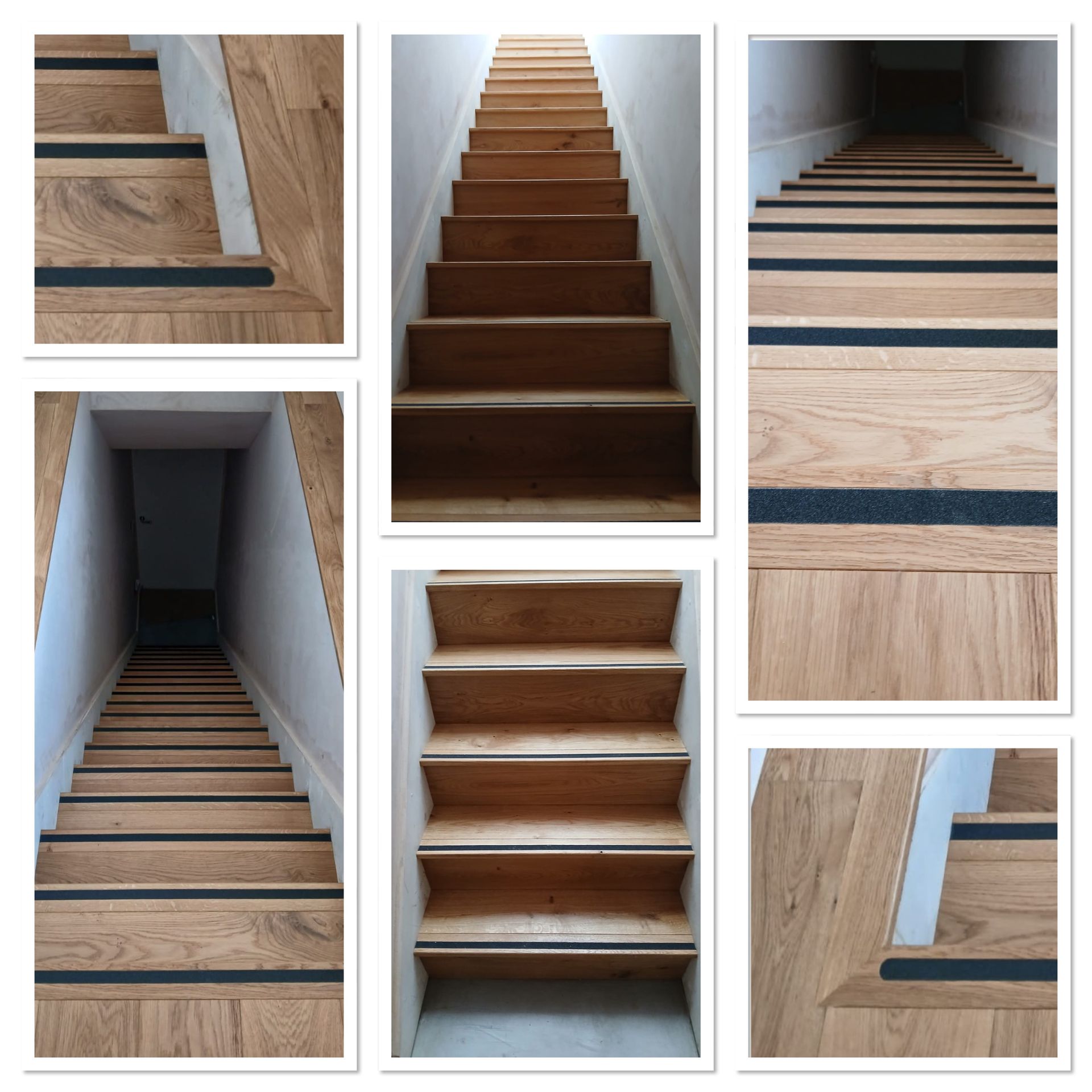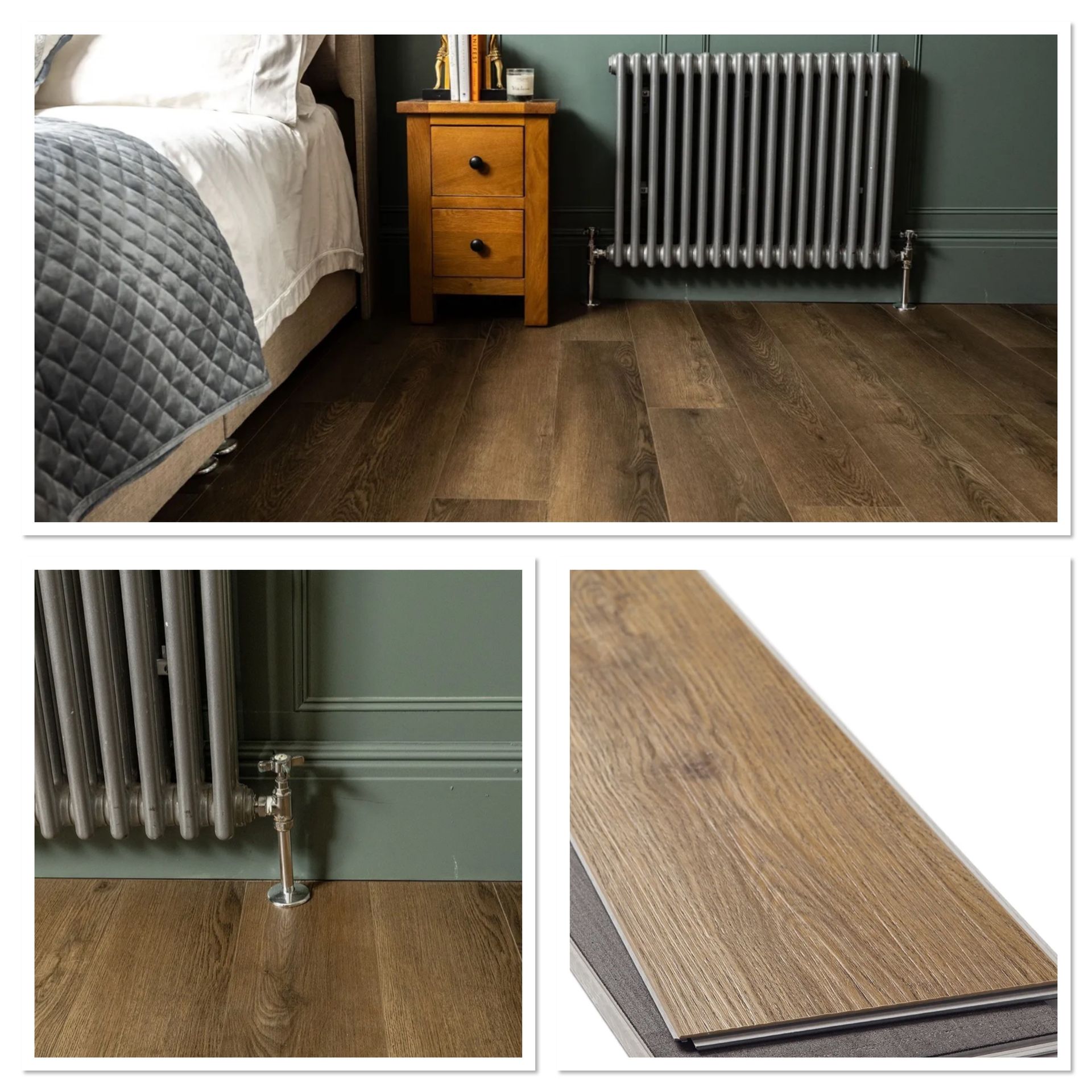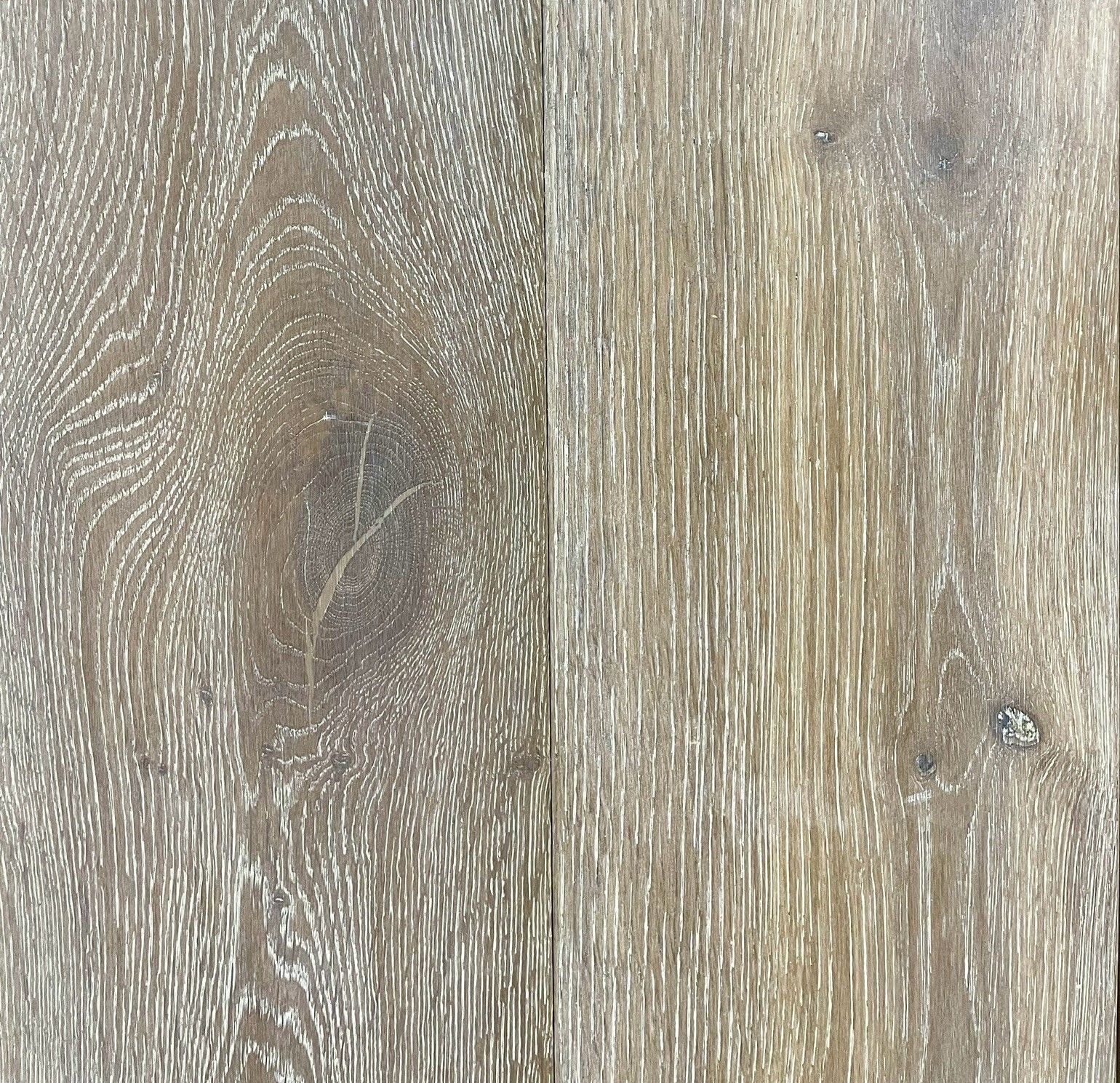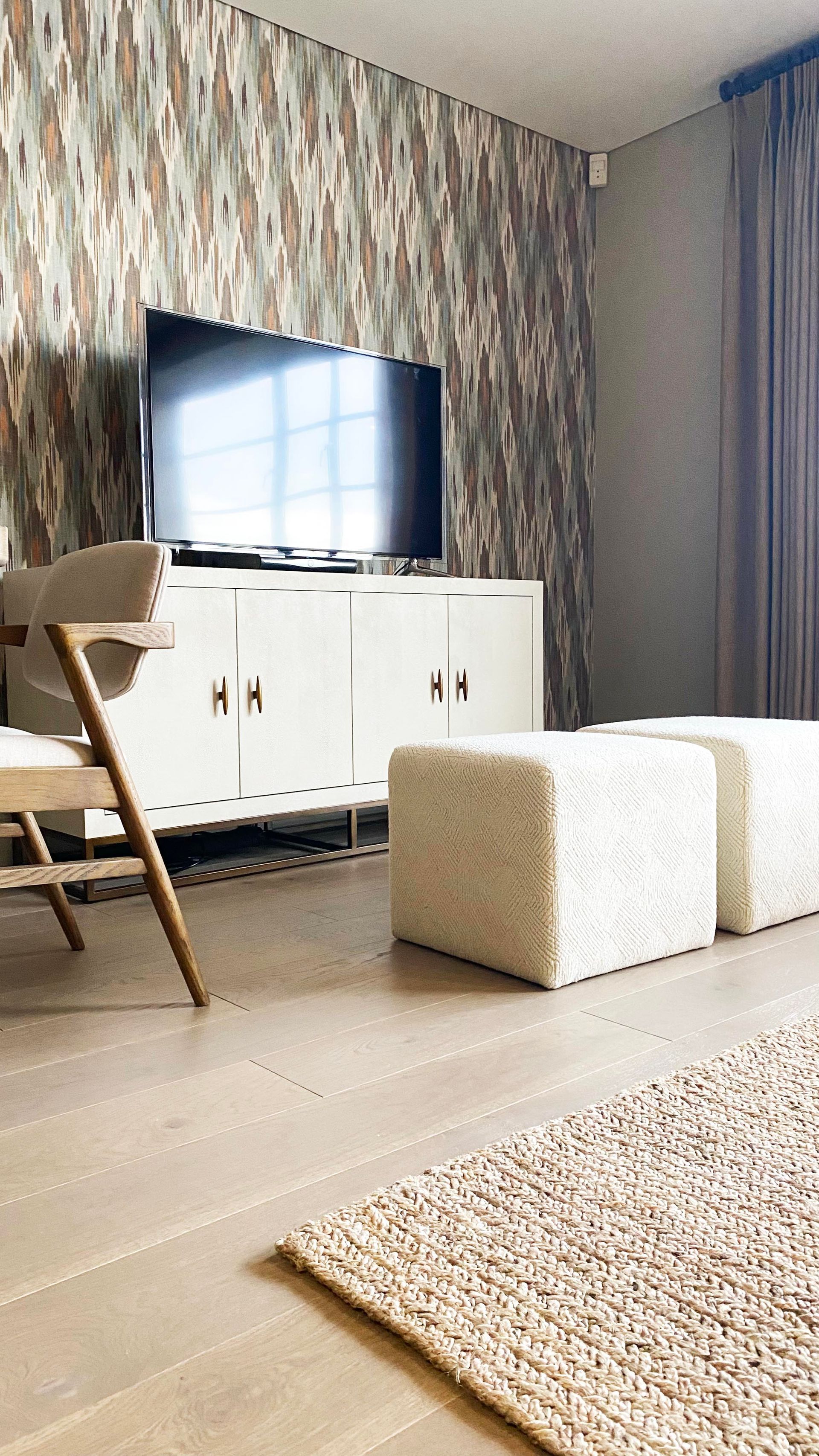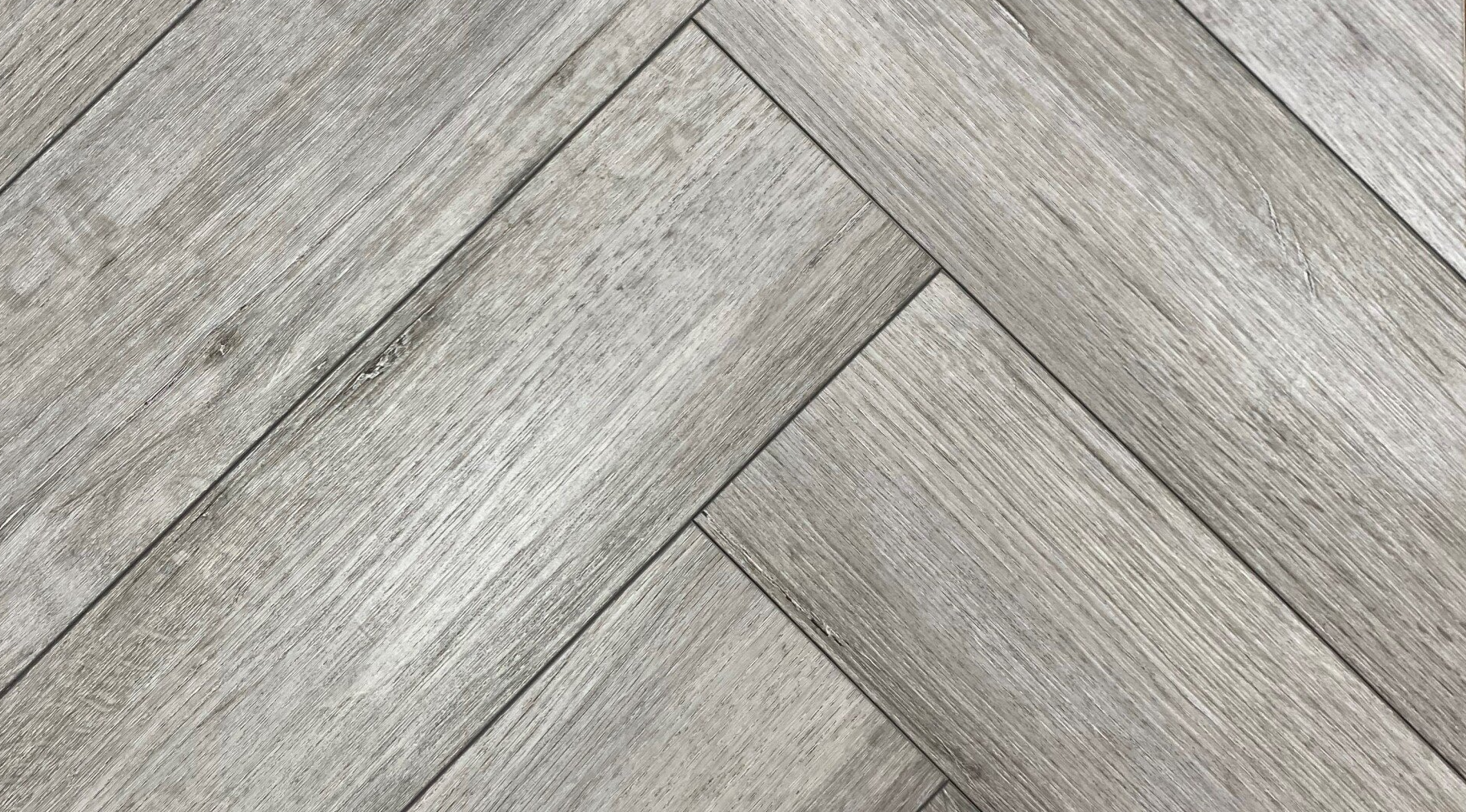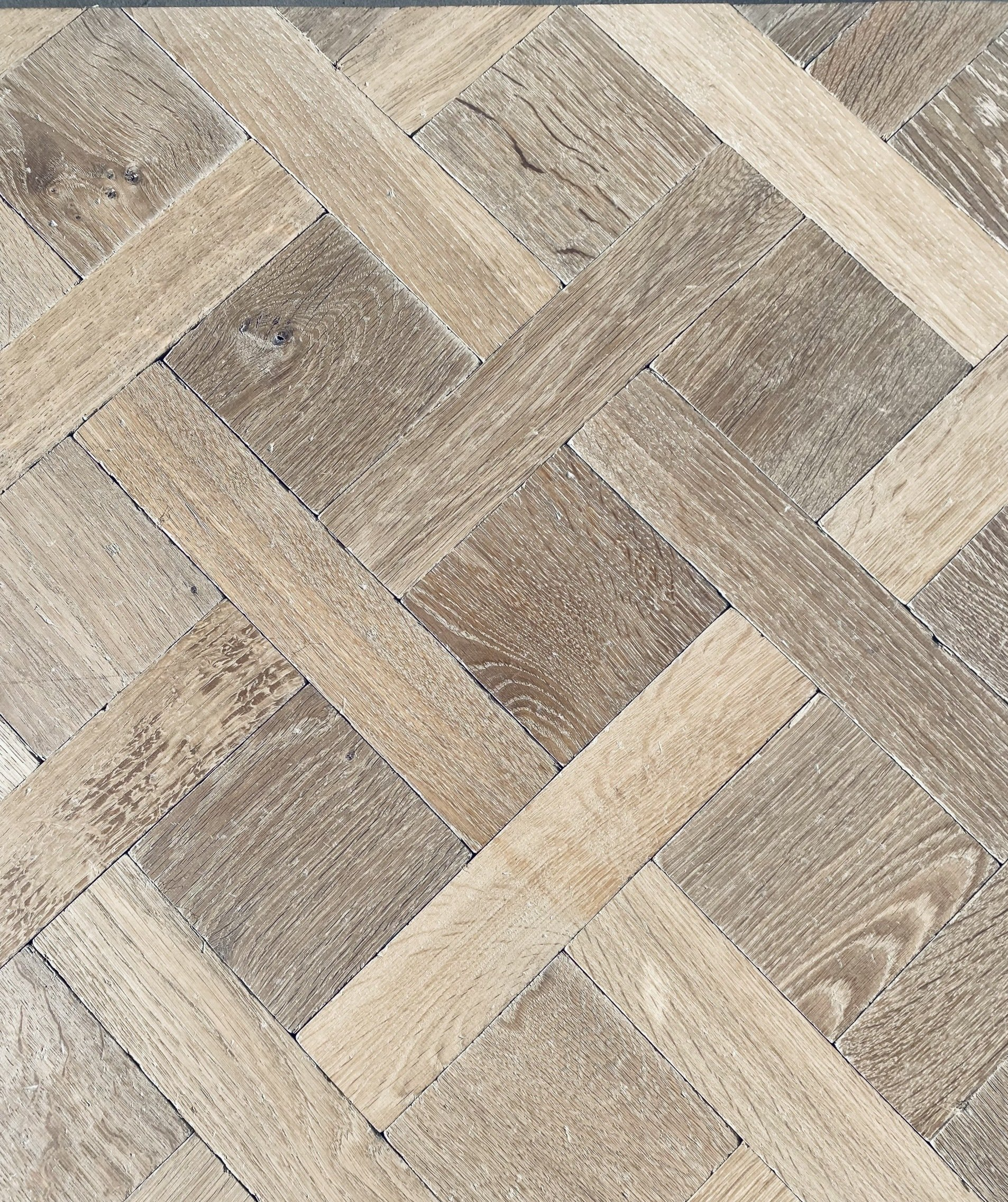How to look after your floor
01473 281775
How to look after your floor
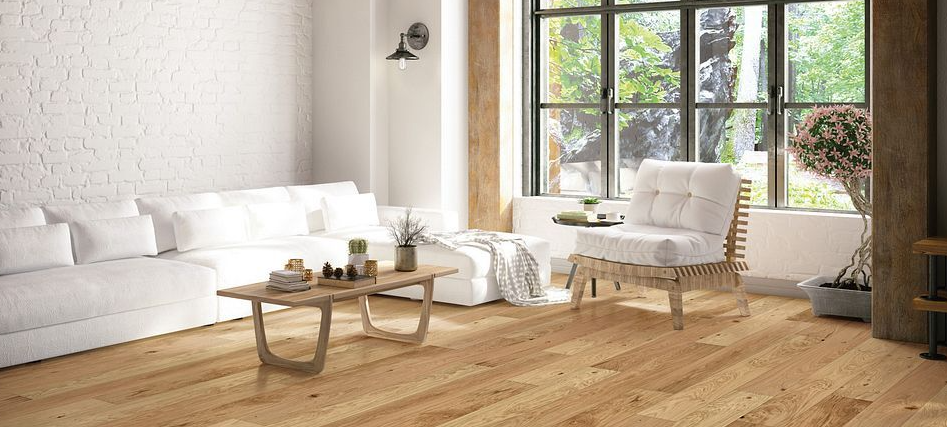
We often get asked how to clean and maintain or protect your newly fitted flooring.
So today we have tried to give you as much information as we can to help make your floor last a life time
Cleaning and maintaining oiled or lacquered flooring
It is important to understand what your wood floor is as it will affect the way you clean and maintain the surface.
Lacquered or varnished floors will not need maintaining with oil but special care
should be taken to avoid scratching as it can be more difficult to repair.
Oiled floors will need periodic oil maintenance and can be commissioned with an extra coat of maintenance oil for areas of high traffic and areas where spills are more likely.
Keep a record of your floor's finish as this will be useful for maintaining your floor in the future
Regular cleaning
Daily/weekly cleaning consists of sweeping and vacuum cleaning.
Sweep with a soft broom or dust- attracting flat head mop.
When choosing a vacuum cleaner make sure it has a hard floor or parquet setting. Before you vacuum make sure this setting is selected and check the vacuum end for debris which could cause scratches.
Floors can be periodically damp cleaned with an appropriate spray cleaning and mop pad or a well wrung out mop, avoiding use of excess moisture.
NEVER WET MOP OR STEAM CLEAN WOODEN FLOORS.
All spills should be wiped up immediately with a absorbent kitchen towel.
Avoid abrasive microfibre cloths and wet wipes, which can react with the lacquer or oil and remove the finish.
Using the right type of floor cleaner
Both lacquered and oiled finishes are semi permeable allowing the wood to breathe.
This means you should avoid using harsh chemical and abrasive cleaners on your hardwood or laminate wood floors.
Many supermarket including brands claim to work well on all surfaces wood floors but most should be avoided as they contain high acidic or caustic ingredients that will
quickly compromise the lacquered or oiled surface of your floor, destroying the water and stain resistant properties.
We would highly recommend Treatex
to help clean and maintain your floors, we stock Treatex cleaning and maintenance products and kits.
Wipe up spills
Avoid standing water or liquid. Wipe up any liquid spills quickly and never allow spills to stay on the surface for any length of time. If moisture ingresses into the surface of your floor it may cause lasting damage
Oil and oil fried food can react with oiled surfaces and should be wiped up directly.
Correct ambient conditions
During the life of the floor ambient humidity must be maintained within the range of 45% to 65% RH and 18 to 24°C. This includes during periods when the property is unoccupied such as during holidays. Please note that high humidity may lead to warping and other issues, whilst excessive drying caused by high temperature &/or low humidity may lead to splits and warping.
Avoid rapid changes in temperature.
Foot traffic
When possible, avoid wearing outside shoes especially if wet or muddy. Stiletto heels may damage wood floor finish and cause compression marks on some wood species, and are not recommended for use on wood floors. Avoid heavy work boots with abrasive soles and thick treads which can retain abrasive objects such as gravel stones. In areas of high foot tone traffic pay special attention to daily cleaning and
where possible use protective rugs and matting.
Kitchen floors
Lacquered wood floors are a good choice for Kitchens as they provide a surface that is stain resistant without the need for regular maintenance.
Alternatively oiled wood floors also perform well in kitchens but should always have an extra coat of maintenance oil applied after installation.
This commissioning coat is buffed into the surface after installation and ensures that the oil is evenly redistributed in the wood's surface, it also adds a water-resistant seal between the joints of each board.
Entrance matting
Always have internal and external entrance matting at all entrances to the property; this will help prevent abrasive particles being carried onto the floor, and will
extend the life of the floor finish.
Protect from furniture
Use self-adhesive felt pads on flat furniture feet to protect the floor from excessive scratching, and usefelt based castor cups under wheeled furniture.
A purpose made polypropylene floor mat must be used below wheeled office chairs. Heavy scratching will break the surface causing damage to the timber by ingress of moisture from cleaning.
Sunshine
Wood is a natural material and is affected by UV light.
Oak will mellow and become darker and richer in tone.
Each species will react in different ways to UV light. In rooms with large windows, especially those
which are south facing, special care should be taken to reposition furniture and rugs to ensure an even colour across the floor.
Household plants
Take care when watering not to spill water around the base of any planter and avoid using metal trays as these can react with water and the natural tannins in oak to produce black watermarks
A planter with soil soaked in water can cause the underside to be cold which can lead to condensation, so it is a good idea to use protective non-reactive plastic mats beneath pots and trays.
Pet care
Keep pets' claws well-trimmed to avoid scratches and protect areas where they sleep and feed to avoid damage from moisture and spills.
Always protect flooring around your pet's food and water bowls from spills and standing water.
Protection whilst decorating
When protecting your floor, where possible avoid covering with plastic sheeting or any material which excessive scratching, and use does not breathe as it can form condensation. Instead use card or fabric dust sheeting.
When using masking tape to paint round architrave airs. Heavy scratching will and skirting, DO NOT leave tape on the floor longer than it takes to paint each coat.
If left for more than a couple of hours, tape adhesive can react with the floor finish causing damage.
If paint is spilt remember that cleaning fluids may damage the floor so avoid, if possible, instead use mild soap and a nylon brush to work away the paint.
If you have any questions that we have missed please do get in contact.
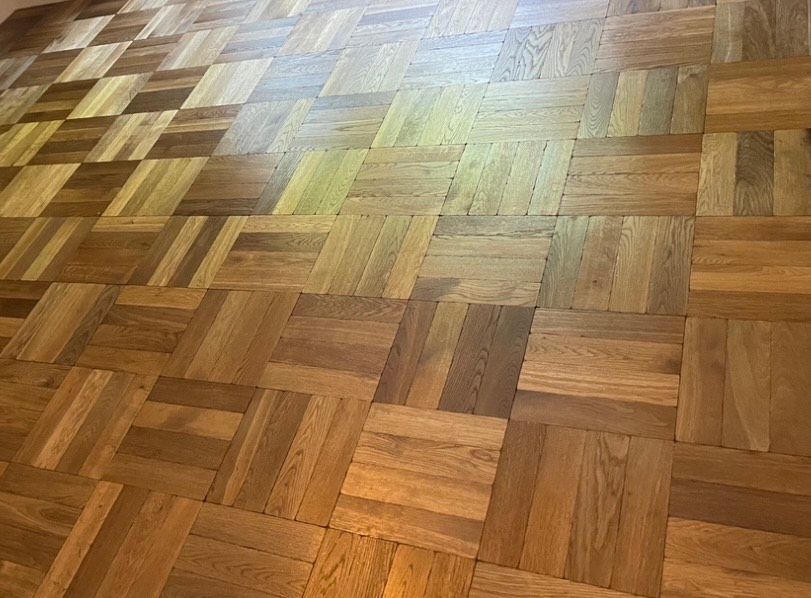
Here’s a sneak peek at a recent job we completed in a beautiful home Ipswich. A stunning bespoke oak flooring, handcrafted in our workshop in Ipswich. Aged, tumbled, smoked, and distressed in a classic diced pattern — and one very happy customer! We’re not just another flooring company. As a local, family-run business with over 30 years of experience, we’re proud to be one of the few in Suffolk who manufacture our own hardwood floors on-site at Fore Wood Floors, Tuddenham Road. We specialise in: • Bespoke designs – Herringbone, Versailles, Basket Weave, Mosaic and many more. • In-house smoking, tumbling & ageing • Custom staining & finishing • Expert fitting in some of Suffolk’s finest homes Looking for truly handcrafted floors with character? Get in touch — we’d love to help!
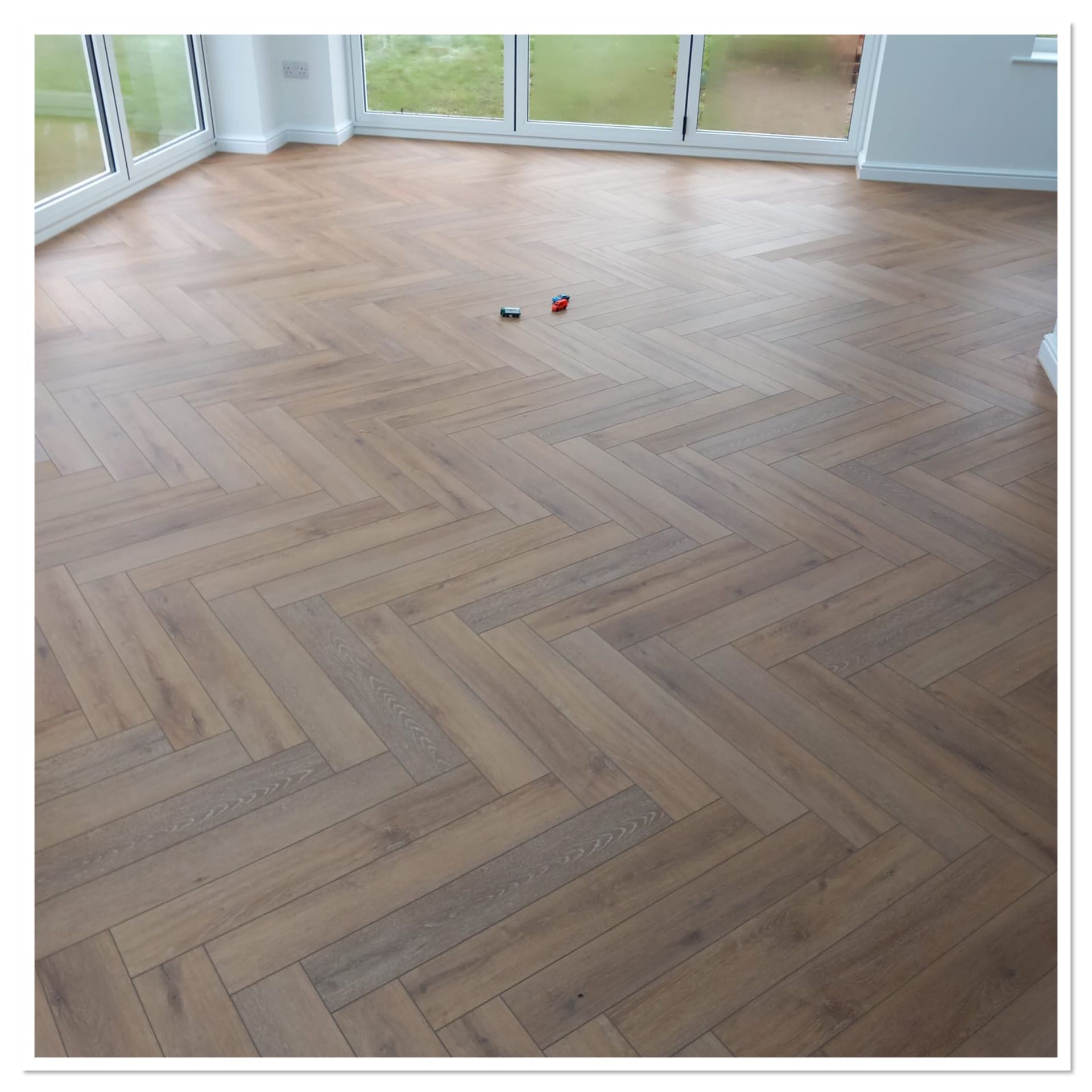
This is a recent project we done in Coretec Acorn herringbone in a beautiful Suffolk house. we installed this in a classic herringbone pattern, the rich tones and timeless design brings warmth and elegance to the space perfectly. As you know, Coretec is one of our favorites products, and for good reason, but i also want to point out here a couple of things as the photos shows how difficult it is to show the true colour of a floor, the herringbone is the same but the light in the kitchen changes it dramatically. I also want to point out how amazing are skilled fitters are, with the photo bottom right with the kitchen door threshold. As you can see we have carried on the design perfectly, also the herringbone is perfectly positioned too, we are very proud of work here at Fore wood Floors and are Team.

